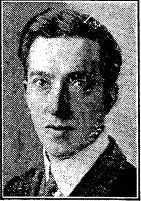Francis Acland
|
The Right Honourable Sir Francis Dyke Acland Bt PC DL JP |
|
|---|---|
 |
|
| Under-Secretary of State for Foreign Affairs |
|
|
In office 23 October 1911 – 4 February 1915 |
|
| Monarch | George V |
| Prime Minister | H. H. Asquith |
| Preceded by | Thomas McKinnon Wood |
| Succeeded by | Neil James Archibald Primrose |
| Financial Secretary to the Treasury | |
|
In office 3 February 1915 – 25 May 1915 |
|
| Monarch | George V |
| Prime Minister | H. H. Asquith |
| Preceded by | Hon. Edwin Samuel Montagu |
| Succeeded by | Hon. Edwin Samuel Montagu |
| Personal details | |
| Born | 7 March 1874 |
| Died | 9 June 1939 (aged 65) |
| Nationality | British |
| Political party | Liberal |
| Spouse(s) | 1 Eleanor Cropper (d. 1933) (2) Constance Dudley (d. 1940) |
| Alma mater | Balliol College, Oxford |
Sir Francis Dyke Acland, 14th Baronet, PC, DL, JP (7 March 1874 – 9 June 1939) was a British Liberal politician. He notably served as Under-Secretary of State for Foreign Affairs under Sir Edward Grey between 1911 and 1915. Ideologically, he was an adherent of the "New Liberalism" within the Liberal Party.
Acland was the son of Sir Arthur Dyke Acland, 13th Baronet, and Alice Sophia Cunningham, daughter of Reverend Francis Macaulay Cunningham. He was educated at Rugby and Balliol College, Oxford. He worked as a junior examiner in the education department in South Kensington from 1900 to 1903, and as assistant director for secondary education in the West Riding of Yorkshire in 1903.
Acland was elected as the Member of Parliament (MP) for Richmond, Yorkshire, in 1906, a seat he held until 1910, and later represented Camborne from 1910 to 1922,Tiverton from 1923 to 1924 and North Cornwall from 1932 to 1939. He was Parliamentary Private Secretary to Richard Haldane, the Secretary of State for War, from 1906 to 1908. He held government office in the Liberal Ministry of H. H. Asquith firstly as Financial Secretary to the War Office from 1908 to 1910. In 1911 he was promoted to Under-Secretary of State for Foreign Affairs to work closely under Sir Edward Grey. He remained in this position throughout the buildup of tensions in Europe which led to the outbreak of war. In February 1915 he was moved to the post of Financial Secretary to the Treasury before being moved again in June 1915 to Parliamentary Secretary to the Board of Agriculture and Fisheries. When Asquith formed his Coalition Government in 1916 Acland was left out of office to accommodate Unionist nominees. In 1915 he was sworn of the Privy Council.
...
Wikipedia
